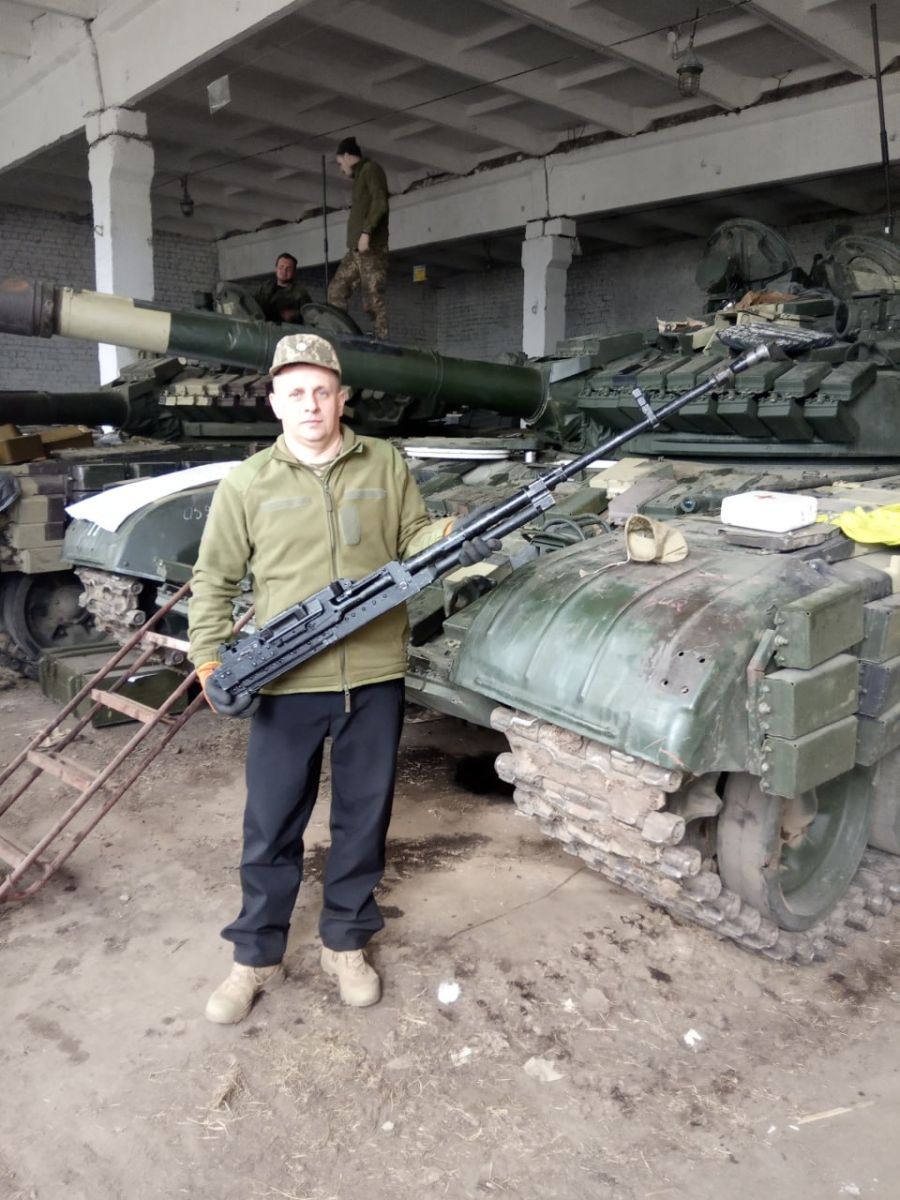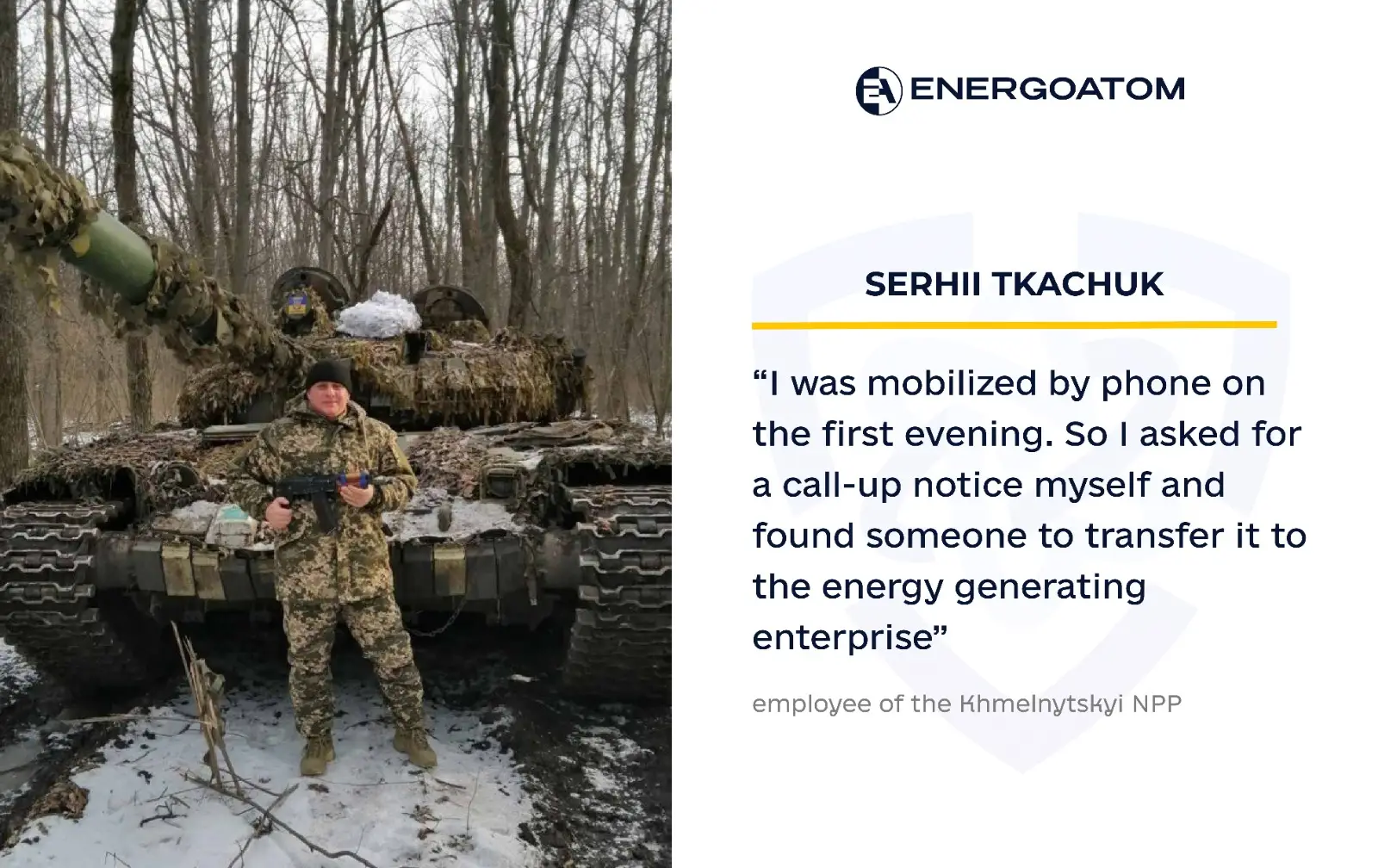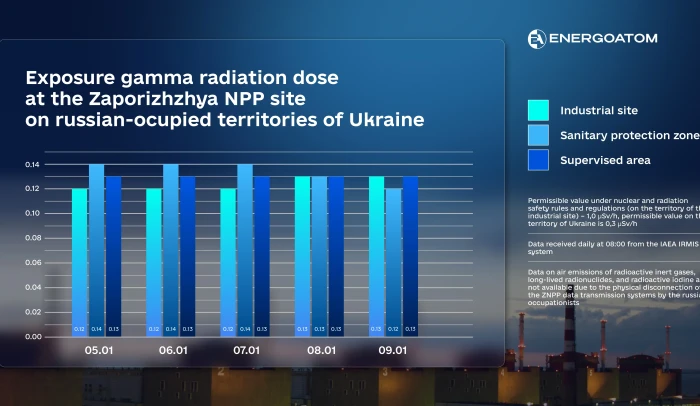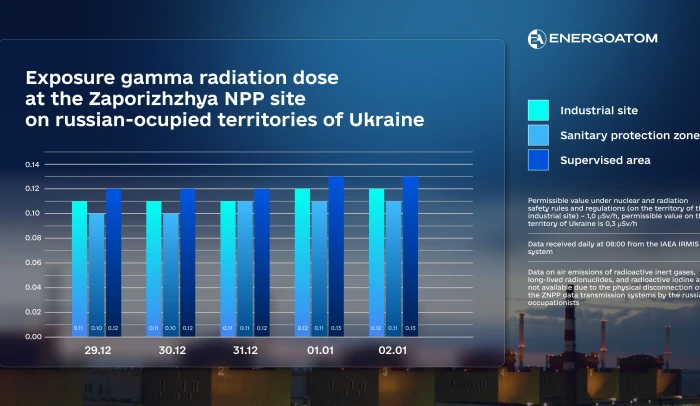Trainer – that was the code sign of Serhii Tkachuk, the employee of Social Facilities Department of the branch “SE “Khmelnytskyi NPP”, JSC “NNEGC “Energoatom”, at the front. He, a second-category trainer-instructor of the swimming department of the Comprehensive Children’s and Youth Sports School, had been defending Ukraine in various directions for almost three years from the first day of the full-scale invasion. He saw how power industry employees, teachers, and programmers became professional soldiers in the war hell’s corner, because they had their parents’ doorstep and children’s cradles behind them. The russian invasion led people of the most peaceful professions to take up arms…
METAMORPHOSES OF WAR: SERHII TKACHUK BECAME A TANK CREWMAN WITH THE CODE SIGN TRAINER
On February 24, 2022, two missiles had already whistled over Netishyn. “These are planes, probably,” the Tkachuk family, like most of the town’s people, did not pay much attention to that roar. They learned about the war from the morning news. The girls – his wife Tetiana and daughters Viktoriia and Anna – stayed home, while the head of the hosehold went to work. It was clear that there were no sports classes at the Comprehensive Children’s and Youth Sports School that day; the city became frozen… At home, the Tkachuks packed their evacuation bags, and late in the evening, the sleepy silence was broken by the first air raid alert. Almost at the same time, a phone call rang. “Perhaps, is one of the parents of the Comprehensive Children’s and Youth Sports School trainees?” the trainer thought habitually. “Please come to the military registration and enlistment office in half an hour with your personal belongings,” was what came out of the receiver. Therefore, on February 24 at 10:30 p.m., junior sergeant Serhii Tkachuk was mobilized into the ranks of the Armed Forces of Ukraine by a phone call. The man had to reсall that he had served in the tank troops more than two decades ago.
Serhii Tkachuk, a graduate from the Rivne Pedagogical University, dedicated his life to the development of the physical health of Netishyn children. At first, he trained children of preschool education institution No 9 swimming, and later, in 2006, he became a trainer-instructor of the swimming department of the Comprehensive Children’s and Youth Sports School. Serhii Antonovych found a special approach to each of his trainees, and thanks to him, more than one hundred young residents of Netishyn mastered the breaststroke, crawl and butterfly, strengthened their health and won their first medals at the local, regional and all-Ukrainian levels. Could the trainer have imagined that at the age of 42 he would stand up for the defense of Ukraine?

TWENTY-THIRTY YEARS AFTER THE COMPULSORY MILITARY SERVICE: “THERE IS A TANK, THERE IS AN ACCUMULATOR BATTERY. ASSEMBLE THOSE, GUYS”
ruscists carried out the first massive shelling of Ukraine, which, in terms of the number of missiles fired – at least 67 units – became one of the most massive. At dawn, they attacked Ukraine along the entire borderline – in Luhansk, Sumy, Kharkiv, Chernihiv and Zhytomyr regions, from the side of the temporarily occupied Crimea, in Donbas, and entered Kyiv and the region from the side of Belarus.
The Ukrainians took up arms immediately. It was considered that the first-line reservists did not need training. After all, there was no time for training; the enemy was already standing on the doorstep. Next to Serhii Tkachuk in the military registration and enlistment office (now the Slavuta United Municipal Territorial Center for Recruiting and Social Support), there were artillerymen, tank crewmen, and former ATO soldiers. They were the ones who suggested the algorithm of actions to the confused recruits. At the military registration and enlistment office, Serhii asked for a call-up notice himself to be transferred to the Khmelnytskyi Nuclear Power Plant. “Actually, I was mobilized by phone, but a state-owned enterprise required documentary confirmation of service in the Armed Forces of Ukraine. So I asked for a call-up notice myself and found someone to transfer it to the energy generating enterprise,” he says.
Having spent the night in Slavuta, the next day, the defenders set off for the Yarmolyntsi military unit. As a transfer point, it was not designed for thousands of recruits. However, they found a military uniform for everyone there, even the relevant size, was more or less selected, as Serhii says. Residents of the surrounding communities helped with food. Hot meals were prepared and delivered in turn by volunteers who lived within a radius of 10-15 km from the military unit. In the nervous tension of the first days of the great war, in the February cold, it was very important to eat homemade red borshch with vareniki (dumplings) instead of porridge with stew. Gas station workers brought warm overalls, and local residents provided assistance as well.
Most of the new tank crewmen were middle-aged people: 20-30 years had already passed since their compulsory military service. It is clear that in the everyday life of civilian professions and family worries they had forgotten their military skills. “There is the equipment, and there are the accumulator batteries. Try to assemble those, guys,” the officers turned to them. “We held together; the younger, more nimble ones gave advice to the elder ones. We helped each other,” recalls the first days of military service, tank crewman and mechanic Serhii Tkachuk. Therefore, Ukrainian men quickly adapted to the challenges of war and began to prepare combat vehicles to defend their homeland. “We went to repair vehicles in overalls from petrol stations, in household items, or in clothes provided by volunteers. We saved our military uniforms for the front line,” he describes everyday life in Yarmolyntsi.
Senior officers formed combat-ready troops. “At that time, no one stayed in the units for long. In fact, the guys got to the front line 3-4 days after mobilization,” recalls Serhii. After a quick inspection of the tanks, they began to be sent to the front by rail together with the combat crews. “Our unit was sent towards Hulyaipole, which is in the Zaporizhzhia direction. We understood that there would be no proper support there. Therefore, we tried to give each soldier warm clothes, as much food as possible, apples, and tinned goods, which were generously shared by compatriots,” the resident of Netishyn says.
Needless to say, not all the equipment that had been stored for years was started. Several men who had proven themselves to be the best mechanics remained for repairs. Junior sergeant Serhii Tkachuk was among them.

THE FIRST MONTHS OF THE GREAT WAR: THERE WERE DIRECT FRONTAL ATTACKS, MANY GUYS WHO MOBILIZED WITH ME WERE KILLED
After repairing the equipment, junior sergeant Serhii Tkachuk, under the pseudonym Trainer, caught up with his brothers-in-arms in the Zaporizhzhia area. “In the early days of the great war, we defended Zaporizhzhia, Donetsk, and Dnipropetrovsk regions. There were direct frontal attacks, many guys, with whom I was mobilized, died. We were constantly losing equipment, and the surviving crews were replaced. The unit changed its deployment every time: today we have mopped up one village, tomorrow another one. That continued until the summer of 2022, until it was possible to relatively stabilize the front line. Then the infantry dug in, and the artillery provided its fire support,” the man recalls.
Well-trained regular enemy troops were attacking the Ukrainians. From his own experience, Serhii advises to adequately assess the enemy, because excessive demonization of those undermines morale, and underestimation leads to increased losses. Later, when the desperate resistance of the Armed Forces of Ukraine stopped the russians, they even turned prisoners against us. They were the first, like the penalty battalions in the past, to throw into the attack in order to identify the weaknesses of the Ukrainian defense.
Covering themselves with a human shield, they were followed by professional Russian military personnel... The phenomenon of the Ukrainians who then stopped the overwhelming force of the enemy, will be studied in military academies around the world, I am convinced.
“THE MAIN THING IS TO BE PROVIDED WITH THE AMMUNITION DELIVER ON TIME, AND FOOD IS A SECONDARY MATTER”
Serhii does not focus on providing the troops. He says that at any costs they strived for stopping the enemy’s advance deep into our country. “The main thing is to be provided with the ammunition deliver on time, and food is a secondary matter,” he says.
According to analysts’ calculations, against one of our shells, the russians had 7-10. Therefore, they burned the Ukrainian land with fire, and our military, in turn, were forced to place well-aimed shots on target. Of course, owing to the support from our allies, modern ones gradually replaced soviet-style military equipment. However, according to the military, there is still a catastrophic shortage of weapons.
Today, there is also a lack of personnel on the front line. “If earlier we went on combat duty for 4-7 days, now the guys stay at firing positions for more than a month. People are exhausted, but they keep the line,” says Serhii.
In 2023, Serhii Tkachuk’s unit was redeployed to the Kharkiv region. After being awarded the next rank, the resident of Netishyn became platoon chief sergeant. He began his service as a driver-mechanic, but later, due to a shortage of combat vehicles, he switched to replacement, and after that, to support unit.
Having served 2 years and 8 months, sergeant Serhii Tkachuk was demobilized in October 2024. In Netishyn, the instructor returned to his training activities at the Comprehensive Children’s and Youth Sports School, Social Facilities Department of the branch “SE “Khmelnytskyi NPP”, JSC “NNEGC “Energoatom”.
Looking back, Serhii Antonovych does not regret that he stood up for the defense of our state by phone call. After all, he is convinced that if not on the first day of a full-scale invasion, then he would have gone on the second or third day... The man is proud that he was among those who stopped the enemy advance in the first months of the great war. Those who gave their lives for our freedom are forever in his memory. The Netishyn resident is convinced that their sacrifice was not in vain – “we, brothers, will prevail at our side.”
Larysa Vlasiuk spoke.





